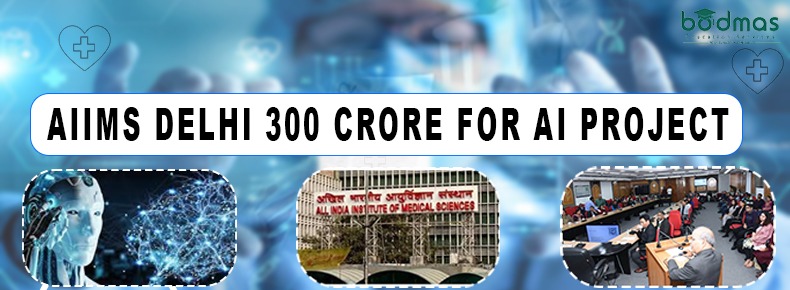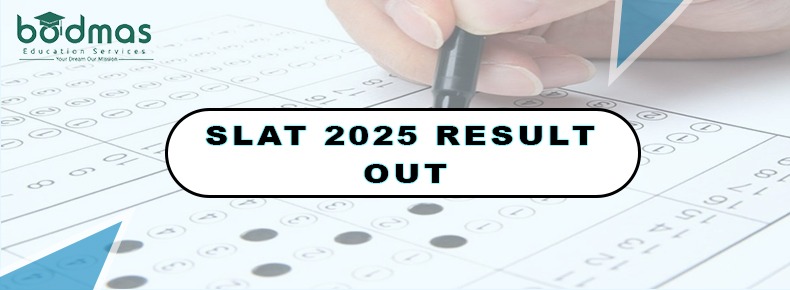NEET UG 2025 Syllabus Finalized, Govt will make an official website for NEET UG
The National Medical Commission (NMC), through its Under Graduate Medical Education Board (UGMEB), has officially finalized the syllabus for the NEET UG 2025 exam. This announcement is a significant update for all students aspiring to enter medical colleges across India. The updated syllabus will serve as the guiding framework for the preparation of study materials and for candidates preparing for the NEET UG 2025 examination, which is set for the academic session 2025-26.
The syllabus for NEET UG 2025 covers key subjects such as Physics, Chemistry, and Biology, ensuring that the exam assesses a student’s comprehensive understanding of basic concepts crucial to medical education. This syllabus update marks a crucial step toward standardizing the examination process and helping students align their preparation with the prescribed guidelines.
Highlights of the Public Notice
In the Public Notice issued in December 2024 by the National Medical Commission, the Under Graduate Medical Education Board outlined the following key points:
- Finalization of the Syllabus: The NEET UG 2025 syllabus has been officially finalized and is now available for public access. It can be downloaded from the official NMC website.
- Availability for Reference: The syllabus has been uploaded for the reference of all stakeholders, including students, educational institutions, and coaching centers. This will help in the preparation of study materials and overall exam strategy.
- Advisory to Stakeholders: The notice encourages all stakeholders to refer to the updated syllabus while preparing for the NEET UG 2025 exam, ensuring that study resources and exam preparation are aligned with the prescribed topics.
- Academic Session: The NEET UG 2025 exam will be conducted for the academic session 2025-26, and the syllabus forms the foundation of the preparation strategy for that period.
Why the Updated Syllabus is Important
For students aspiring to pursue undergraduate medical education, the NEET UG exam is one of the most crucial exams to crack. The finalized syllabus will guide candidates in focusing their studies on the right topics and provide a structured outline of what to expect on the exam.
Here’s why the finalized syllabus is so important:
- Comprehensive Understanding of Topics: The syllabus is designed to encompass the critical topics of Physics, Chemistry, and Biology. It helps ensure that students have a comprehensive understanding of fundamental concepts, which are vital for both the exam and future medical studies.
- Strategic Preparation: With the syllabus in hand, students can strategize their study schedule, allocate time to each subject according to their strengths and weaknesses, and focus on the most critical areas.
- Guiding Study Material Development: Educational institutions and coaching centers will use the updated syllabus as a reference to create study materials, practice papers, and mock tests. This ensures that students are receiving resources that are aligned with the current exam requirements.
- Reduced Ambiguity: By providing a clear structure, the syllabus removes any ambiguity regarding what is expected of students, reducing unnecessary stress during the preparation phase.
What’s Covered in the NEET UG 2025 Syllabus?
The syllabus for NEET UG 2025 includes three core subjects:
- Physics: The Physics section includes key topics such as Mechanics, Thermodynamics, Electrostatics, Optics, and Modern Physics. A solid understanding of these concepts is essential as they lay the foundation for many medical applications in fields such as medical imaging, diagnostic tools, and understanding the human body’s mechanics.
- Chemistry: The Chemistry syllabus is divided into three main areas—Physical Chemistry, Inorganic Chemistry, and Organic Chemistry. Important topics include Atomic Structure, Chemical Bonding, Thermodynamics, and Carbon Compounds. Chemistry plays a crucial role in medicine, particularly in areas like pharmacology and biochemistry.
- Biology: The Biology syllabus is one of the most important sections for medical aspirants, covering topics such as Human Physiology, Plant Physiology, Genetics, Evolution, Cell Biology, and Ecology. This section forms the foundation for understanding the human body, disease mechanisms, and medical interventions.
How to Use the Syllabus for Effective Preparation?
- Download and Review: The first step is to download the official syllabus from the NMC website. Review it thoroughly to understand the scope of each subject and the individual chapters included in the syllabus.
- Create a Study Plan: Once you have a clear understanding of the syllabus, create a structured study plan that allows you to allocate time to each subject. Prioritize subjects you find challenging while ensuring you cover all topics systematically.
- Use Trusted Resources: Ensure that the study materials, books, and coaching resources you use align with the NEET UG 2025 syllabus. Refer to previous years’ papers and sample papers to familiarize yourself with the exam pattern.
- Regular Mock Tests and Revision: Regularly take mock tests to assess your preparation level. After each mock test, revise the areas where you made mistakes and focus on improving them before the actual exam.
Where to Access the NEET UG 2025 Syllabus?
The official NEET UG 2025 syllabus has been uploaded on the National Medical Commission’s website, and candidates can easily access and download it from there. This will provide a comprehensive list of topics to focus on and ensure that students are well-prepared for the exam.
- Website Link: Visit the NMC website for the syllabus and other important updates.






























